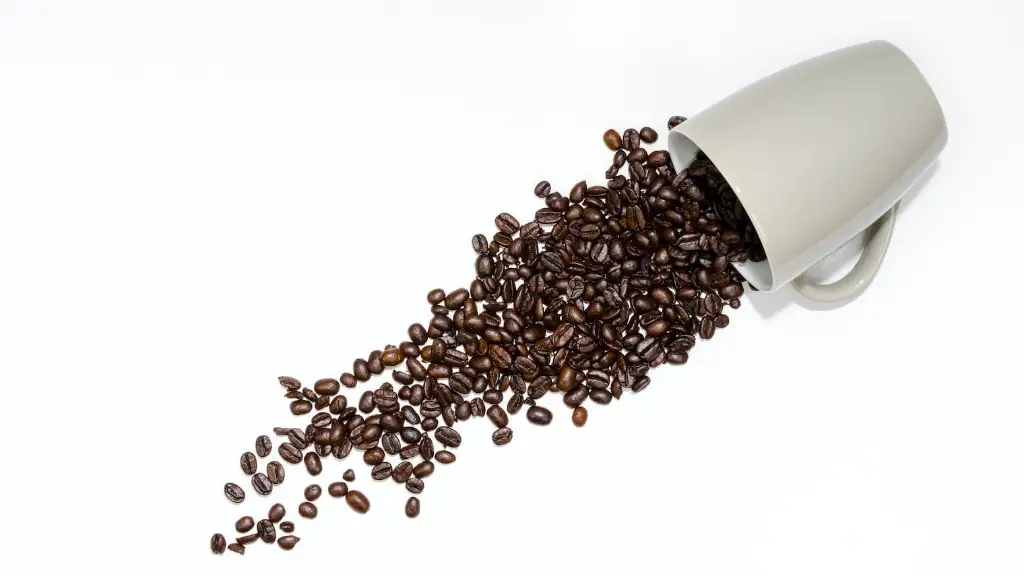Drinking coffee just before engaging in a workout has become increasingly popular over the past few years. But it’s important to consider the potential benefits and drawbacks of consuming caffeine before exercising. Depending on the type of workout, timing of coffee consumption can greatly impact one’s performance and safety.
Caffeine is a well-known stimulant and a powerful ergogenic aid. It has been shown to reduce the perception of fatigue, increase alertness, improve reaction time and coordination, and elevate levels of physical and mental performance – all of which could significantly enhance one’s workout experience. Studies have also indicated that it has the potential to improve vascular function and enhance fat oxidation, both of which can essentially improve endurance and energy expenditure.
However, if consumed too close to exercising, the effects may be detrimental. Too much stimulation before working out can cause jitteriness, nausea, and headaches. Caffeine can also increase one’s heart rate and blood pressure to a level that could be unhealthy and cause the body to burn carbohydrates faster than normal, leading to ‘bonking’ – or the feeling of hitting a wall during a workout.
Experts therefore advise that to ensure both comfort and safety, it is important to moderate the timing of caffeine consumption in relation to when one plans on working out. Depending on individual caffeine metabolism, it’s ideal to limit coffees to one hour prior to exercise. It’s recommended that those with higher levels of caffeine intolerance should even wait two hours before engaging in physical activity.
Additionally, one should take into account the type of exercise they will be engaging in. Higher intensity workouts will require more time between the ingestion of coffee and the start of the exercise, while low intensity activities may need less time.
Finally, it is essential to properly assess the amount of caffeine needed to be consumed. It’s important to remember that any caffeinated beverage contains between 95 to 200 milligrams of caffeine per 8 ounces. So it might be necessary to adjust the amount depending on each individual’s tolerance.
Coffee pre-workouts
One does not necessarily have to choose between coffee soaked in cream or pre-workouts. Many still like the idea of having caffeine from coffee before working out and nowadays there are several options to do this.
Merging the two worlds, pre-workouts with coffee are a rising trend in the fitness industry. They usually include a blend of caffeine, B vitamins and amino acids, as well as other ingredients that are designed to improve performance, increase energy, and delay fatigue.
These products can be very beneficial for high intensity athletes as they create an energy boost, mental clarity, and increased focus. A great benefit of this type of pre-workouts is that they have a smooth and gradual energy increase, in comparison to the quicker and more intense effects of pure coffee.
It’s important to make sure that the pre-workout ingredients are sweeteners and chemicals that are within one’s comfort level. Additionally, it is important to follow the instructions provided since taking too much can lead to a caffeine overload that could cause caffeine-induced anxiety and disrupted sleep.
Caffeine sensitivity
Caffeine sensitivity, or individual response to coffee, is one of the most important factors to consider when looking to decide how much coffee and how close to a workout should coffee be consumed. Each individual’s response to caffeine is unique, therefore if one wants to get the most from their coffee and workouts, it’s best to do some experimenting and track one’s response to coffee.
Everybody metabolizes caffeine differently and some might experience greater energy or alertness with the same amount of coffee as others. Additionally, caffeine sensitivity can also fluctuate and change with time, so it’s important to note if something changes in order to adjust the pre-workout routine.
Fortunately, there are some tools that help understand individual levels of caffeine sensitivity. Some apps keep track of individual caffeine consumption and reaction. This can help determine the best time to drink and the ideal type and amount of coffee.
Coffee alternatives
There are many alternatives to coffee that are worth considering, especially if one is looking to keep caffeine consumption at a minimum. Cold brew is lower in caffeine than a typical cup of coffee – as it is steeped for longer, but shorter than espresso. Additionally, there are many other caffeine sources such as teas, guarana and energizing types of juices that could limit caffeine intake and improve the pre-workout experience.
Kombucha, for instance, is a fermented beverage made by combining tea, sugar, bacteria and yeast that contains several beneficial effects to health. This type of drink contains small amounts of caffeine – similar to what is recommended before a workout. But the real benefit of Kombucha comes from the antioxidants, probiotics and acidic content that it offers.
Athletes also have different options when it comes to specifically designed pre-workout beverages for those who want to limit caffeine consumption or avoid caffeine altogether. These are usually formulated with carbohydrates and electrolytes, vitamins, minerals and other supplements that provide energy without the buzz.
Personal insights and expectations
When looking to include coffee as part of a pre-workout routine, it is important to create a personal protocol including information such as the type and amount of caffeine to be taken and how close to the exercise it can be taken. It’s also important to include expectations of what should be experienced.
This should include levels of alertness, productivity, comfort and any other effect one is looking to take advantage of. Additionally, it’s important to track any changes in caffeine consumption and the related effects. This can help identify if the body is adapting to certain levels of caffeine and the kind of repercussions it has.
Potential health benefits
Research has demonstrated that coffee consumption, in moderate amounts and not too close to a workout, can have plenty of health benefits. Caffeine has been linked to increased metabolism, increased alertness and improved aerobic performance owing to its potent antioxidant properties.
Additionally, studies have linked coffee consumption with improved cognitive performance, memory and reaction time. One study suggests that coffee’s protective effects on memory and other cognitive functions may stem from its influences on enhancing the levels of enzymes associated with brain health.
Coffee has also been associated with reducing the risk of chronic conditions, including Type 2 diabetes and Alzheimer’s. Further research indicates that coffee can reduce inflammatory biomarkers, lowering the risk of chronic inflammation, which is becoming an increasingly recognized factor in numerous illnesses.
Potential drawbacks
Everyone’s response to coffee is different and moderation is key. Excess intake of caffeine can lead to adverse effects that can be particularly dangerous on the job and during workouts. Although coffee is generally considered safe when consumed in moderation, it can cause restlessness, headaches, nervousness and dizziness.
High estimates of caffeine intake have been associated with increased blood pressure, but these effects appear to be greater in people with hypertension and those who do not usually consume coffee. It’s also worth noting that some athletes may experience gastro-intestinal discomforts when coffee is taken before working out.
Caffeine is considered safe in the short-term, however, long-term effects are yet to be fully understood. Although coffee is generally well-tolerated when consumed in moderation, if having adverse side effects, it is best to stop or reduce caffeine intake and consult with a healthcare provider.
Conclusion
Ultimately, coffee can provide a great energy boost prior to a workout. However, it’s important to remember to consider individual caffeine sensitivity, exercise type, and timing of coffee consumption to maximize benefits and prevent any potential drawbacks.





